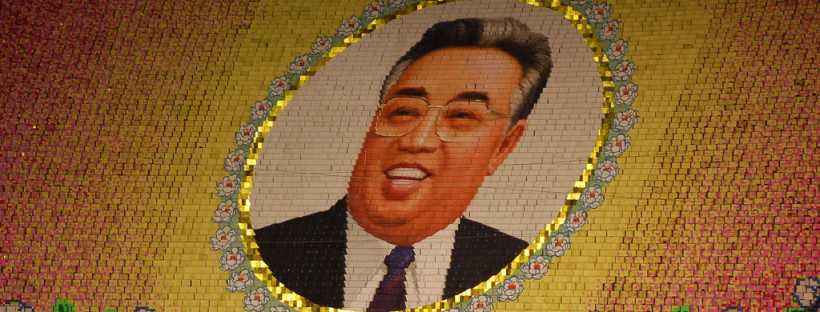 In the early 2010s, Korean-American journalist Suki Kim taught English at North Korea’s Pyongyang University of Science and Technology. In Without You, There Is No Us: My Time with the Sons of North Korea’s Elite, Kim recalls the events of those few months. The story is incredible.
In the early 2010s, Korean-American journalist Suki Kim taught English at North Korea’s Pyongyang University of Science and Technology. In Without You, There Is No Us: My Time with the Sons of North Korea’s Elite, Kim recalls the events of those few months. The story is incredible.
For more than 70 years, while its southern counterpart has come to hold increasingly more economic power, the Democratic People’s Republic of Korea — more commonly known as North Korea — has maintained the peninsula’s reputation as the Hermit Kingdom. It’s hard to get into North Korea, much more difficult to get out, and impossible to move freely within its borders. Thanks to her journalism connections, Kim had already visited Pyongyang several times — to cover Kim Jong-il’s 60th birthday celebration and the New York Philharmonic’s 2008 visit — before she joined the PUST team. Somehow, her previous travels to the Hermit Kingdom did not prevent her acceptance to the school’s faculty, nor was it ever revealed to university.
Because PUST is a privately-funded, Christian university, Kim posed as a missionary in order to remain involved. None of the other missionaries knew who she was, that she was not a Christian, or that she planned to write a book about the experience. What begins as a relatively simple deception ends as a tug-of-war between ideologies when Kim and another professor get approval from PUST’s North Korean “counterparts” to show Harry Potter and the Prisoner of Azkaban to their students, but are met with fierce opposition from the more conservative missionary teachers.
In Without You, There Is No Us, Kim makes no secret of her desire to change her students’ world. To do so is obviously dangerous, and her lessons cause blowback more than once. Providing students with example articles about Steve Jobs and Mark Zuckerberg results in a flurry of essays lambasting the U.S. for everything from utility bills to the unhealthiness of McDonald’s.
Having grown up in a country with no real journalism, PUST students are unable to understand sources, fact-checking, and even basic structure. Often, the young men Kim teaches copy her examples exactly, even when they include stand-in phrases, such as “so-and-so.”
In spite of the obstacles she faces — the ones built around her students from birth and the ones they throw up at any threat to the party line — Kim does manage to change her students. Their transformations are not uniform, nor does it seem as if they all rushed to defect; Without You, There Is No Us is not that kind of book. But it’s obvious that Kim’s efforts, however small, managed to raise her students’ awareness of the world outside their own.
Kim’s time in North Korea and the narrative of Without You, There Is No Us end with the death of Great General Kim Jong-il. The author was set to leave Pyongyang only a few days after the figurehead’s death, and she witnesses the effect the event has on her students. They withdraw, mourn, contemplate, and this is how Kim is forced to leave them. In a way, Kim Jong-il’s death underscores the micro-changes the undercover writer is able to bring to her students’ lives. Kim flies away from Pyongyang, leaving the boys she taught at PUST with a new worldview and a new regime. It’s a bittersweet ending, but one that is more hopeful than all the rest of the memoir put together.
My rating: 5 of 5 stars
I received a copy of this book from Blogging for Books in exchange for this review.
Read all my reviews and follow me on Goodreads!
Image: (stephan)/flickr
